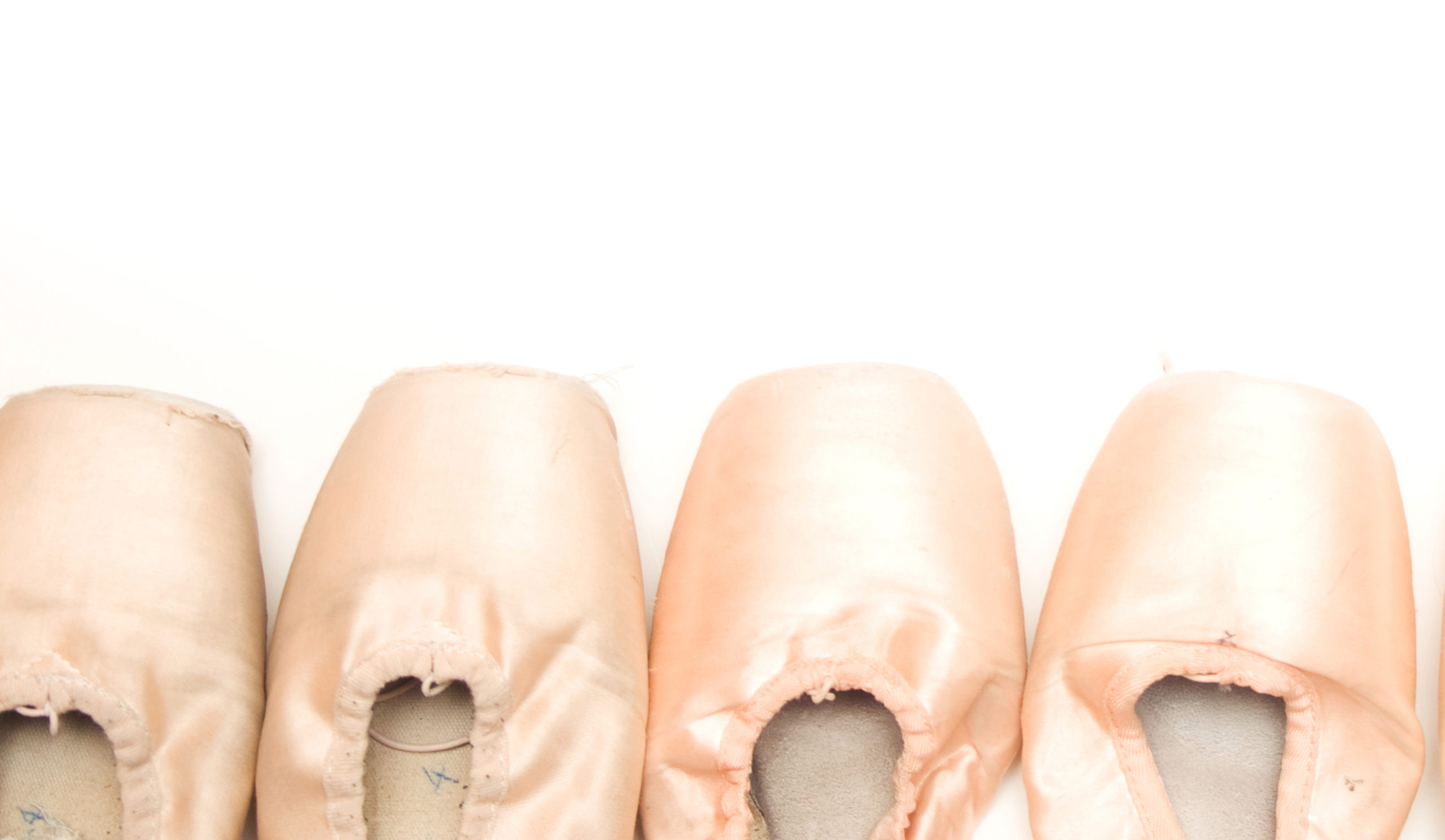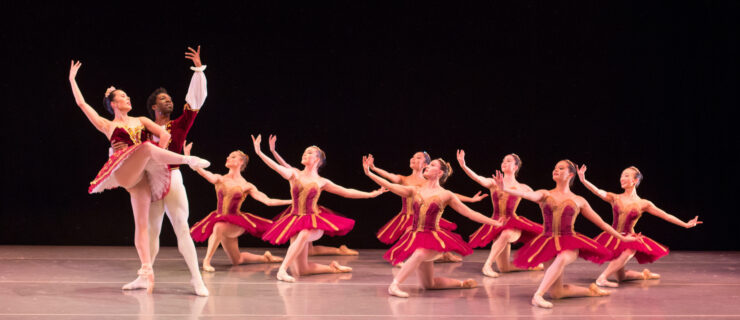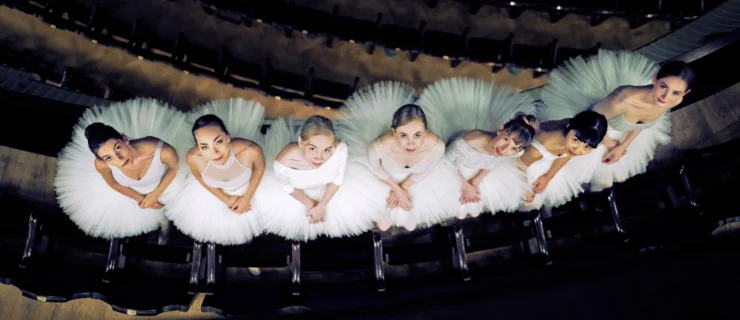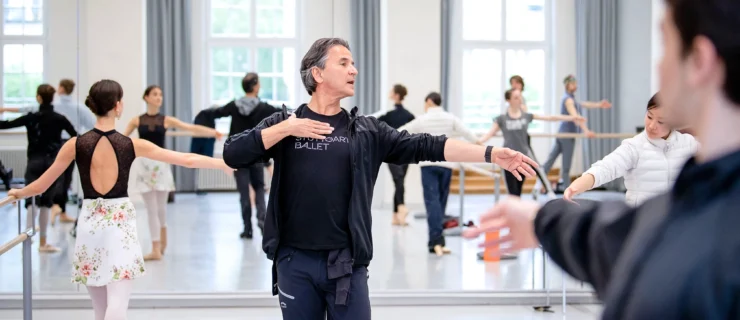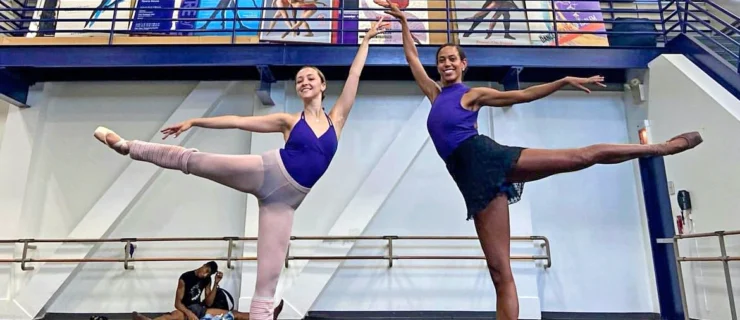Your Best Body: Troubleshooting Nerves
Troubleshooting Nerves
Keep competition stage fright in check–and use it to improve your performance.
By Kathleen McGuire
Joffrey dancer Amber Neumann stood backstage at the 2009 New York International Ballet Competition feeling something new: nerves. Her muscles were shaky and she caught herself holding her breath. “My partner, John Mark Giragosian, was in the company and I was still in the Joffrey school,” she says. “We were doing mostly pas—Paquita pas, Raymonda pas, Paul Taylor’s Aureole. I didn’t want to mess him up.”
Even top-level dancers get nervous before they perform. These fears are often magnified in a competition where every misstep or wobbly landing deducts points from what you are working toward: a medal, a scholarship or a contract. But nerves don’t have to weigh you down. When harnessed correctly, a dose of stage fright can actually fuel a great performance.
Neumann pushed through her anxiety by drinking her routine preperformance Starbucks mocha and warming up in an empty hallway. “I could be in my own little world and listen to my music,” she says. “I always listen to Jack Johnson before I go on. It calms me.”
Still, the first sous-sus in Paquita felt shaky. “In my head I just kept saying ‘Don’t fall over, breathe,’ ” she says with a laugh. “But once we got going I was fine. It was like ‘Now we’re dancing.’ ”
When nerves go unchecked, it can be impossible to dance your best, since the body has a physical reaction to stress. Shaking, tension headaches, cold hands and feet, skin sensitivity, increased heart rate and “nervous water”—the feeling that you need to use the bathroom over and over—are all physiological signs of nervousness. “Mental tension causes muscle tension,” says Dr. Brian Goonan, PhD, consulting psychologist to the Ben Stevenson Academy. “This can create rigidity in your muscles and affect your timing. It can also increase the risk of injury.”
The first step to controlling nerves is finding confidence. “We’ve had several students who were wonderful dancers, but froze up with stage fright,” says Bo Spassoff, director of The Rock School. “They are hardest on themselves. Confidence has to be encouraged and inspired.”
However, confidence can backfire if it crosses the line to cockiness. “Confident is a calm state of being,” says Goonan. “Cocky involves presentation to others.” When dancers focus on impressing other people rather than doing their personal best, they take themselves out of the moment, endangering their ability to perform well.
Many dancers, like Neumann, get into the moment and find calm by following a familiar routine. “Routines put us on autopilot. They keep us from thinking and provide comfort,” says Goonan. “Just like how we all sleep better in our own bed, even if it’s lumpy.”
However, Spassoff warns against letting superstition become part of that routine. “Believing that some ritual, the weather or a date determines the outcome of your performance is a burden that complicates an already emotional experience,” he says. “There’s no harm in rubbing a rabbit’s foot, but acknowledge all the effort you put into the work that can’t be disrupted because, say, Venus is not in a good position in the sky.” He tells his dancers to focus moment to moment instead: “Meditation, concentrated thought, prayer, all of these are more productive and positive.”
Visualization also helps. Before you go on, picture yourself dancing the variation well. “Close your eyes and move through the positions and sequence while standing in one place,” says Goonan. “Focus narrowly on the performance itself.”
Goonan tries to help competitors achieve “a state of creative, fluid awareness.” He encourages dancers to let go of outside distractions and the need to prove something from their past or for their future. “Your body knows what it needs to do,” he says. “Let it do what it knows.”
As Spassoff says, “You are the dancer you are before, during, and after this competition.” Your technique isn’t going to magically transform while you’re onstage. Trust in the strength you’ve gained from the many hours spent training in the studio.
Yet no matter what calming techniques you try, you will likely still experience a rush of adrenaline. Use it as energy for the performance. “Channel your nerves into enthusiasm and love of dancing,” says Spassoff. Remember, the goal isn’t to block stage fright but to harness it.
Neumann and her partner both went on to win silver, the highest medal awarded at NYIBC that year. “I always tell myself that I have to dance for me and no one else,” she says, adding, “If I win, great.”
Kathleen McGuire writes about dance from Pittsburgh, PA.
Tip: What’s the best snack in between class and rehearsal?
“Anything high in carbohydrates and low in fat. Carbohydrates are quick fuel: They restore the lost glycogen in your muscles, giving you more energy. Fat takes longer to digest, so your body feels weighed down. Fig bars, turkey on whole grain bread or a banana and peanut butter are all smart options.”
—Ashley Doyle-Lucas, PhD, a former dancer who recently created Nutrition for Optimal Performance, an education program for ballet dancers.
Don’t Sink Away From Soreness
On days when you wake up extremely sore, it’s tempting to do everything you can to avoid using the painful muscles. However, the quickest road to relief is actually to repeat the same exercises you did yesterday that are making you tight today. When you work through your sore spots, blood and nutrients flow to them, helping speed recovery.
Did You Know?
Dancers are often told to swim because it’s a full-body, non–weight-bearing workout. But it turns out that some ballet dancers are actually fitter than swimmers! In a recent study from the United Kingdom’s University of Hertfordshire, members of The Royal Ballet and English National Ballet School were more physically fit than professional swimmers—including members of the Olympic team! Out of 10 areas of fitness, including endurance, balance and flexibility, ballet dancers outranked the swimmers in 7 categories. That doesn’t mean swimming won’t make you even stronger, but it does suggest that Michael Phelps could learn a thing or two at the barre.
